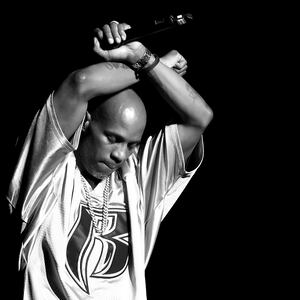This month marks the 60th anniversary of a group of determined Americans challenging segregated transportation in the United States, and enduring vicious attacks and even firebombing along the way.
The infamous Freedom Riders of the 1960s—the late Congressman John Lewis among them—were seeking to expose the failure, especially in the Deep South, to adhere to Supreme Court decisions barring segregation on transit and other public accommodation. It’s clear now, after passage of the 1964 Civil Rights Act and 1965 Voting Rights Act, that their actions were largely successful.
But even if mobs of literal Ku Klux Klan members and other angry white people flagrantly advocating for Jim Crow might seem like a nightmare from the history books, the events of the past year have shown forces of racism to be just as potent as ever.
They’re sometimes just a bit more subtle.
Hundreds of bills have been introduced this year alone in dozens of states to restrict voting access. In March, Georgia passed a bill that includes ID requirements and limits the number of ballot boxes, making voting much more difficult. In the Atlanta area, where the population is high and people of color are well-represented, the number of ballot boxes was slated to drop by about 80 percent (from 38 to eight) under the new law. Along with lower numbers of boxes, some have been delegated to certain locations and may have time restrictions, which means that they could be inaccessible for people depending on their working hours.
Earlier in May, Ohio lawmakers announced that they, too, wanted to lessen the number of ballot drop-boxes and shorten the window for voting. Florida has also looked into limiting voter access, among other states doing the same.
All of these measures appear designed, despite their authors’ protests to the contrary, to disproportionately target people of color for a modern version of disenfranchisement.
And, of course, actual, state-sanctioned violence is still very much a threat to Black people and their allies in modern America. Much of it comes from police: One year ago today, George Floyd, a 46-year-old Black man, was murdered by a white cop in Minneapolis after allegedly using a counterfeit bill. That his killer—caught on video, and widely witnessed committing the crime—has been tried and convicted should not be read as some arbiter of major reform in America.
Still, like the Freedom Rides, the George Floyd protests of the summer of 2020 woke the nation up to the reality of racialized police brutality. And similar to the physical aggression that Freedom Riders faced, Black Lives Matter protesters have pointed to a slew of incidents of aggressive police response—and even, in one case, an off-duty judge allegedly targeting them with his car—as signs of a lingering, albeit lower-key, Jim Crow mentality.
One activist who helped organize the 1960s Freedom Rides, Bob Zellner, has no qualms about drawing a line between the two struggles. He calls Floyd’s murder a modern-day lynching.
“Freedom is a constant struggle,” Zellner, who is white, told The Daily Beast. “We have to constantly be working on it. A part of it is educating ourselves and to educate the public.”
To that end, the 60th anniversary of the original Freedom Rides has been commemorated by the filmmakers of Son of the South, a movie based on events of the early Civil Rights Movement and Zellner’s autobiography, The Wrong Side of the Murder Creek, and hosted at the Freedom Rides Museum in Montgomery, Alabama.
Zellner argues that modern activists must be radical in order to get their point across and ensure racial and social progress—even as signs of resistance, including from many Democrats, crop up to aggressive demands from the left.
“The reaction of a lot of progressives to Black Lives Matter is, ‘You’re just too radical. You’re harming the cause by talking about defunding the police,’ Well, that’s what the Student Nonviolent Coordinating Committee (SNCC) in 1959/60 was as it began to be organized,” Zellner told The Daily Beast. “Very few people remember that Martin Luther King Jr. was vilified by even prestigious members of the civil rights community. SNCC and Dr. King had very low public approval at the time they were doing that. We had a tremendous uphill battle, and we were considered just much too radical to be effective. Black Lives Matter has that same situation now.”
Over the past week, the Freedom Rides Museum, located at the site of Montgomery’s historic Greyhound bus depot, hosted a series of speakers, activists, and presentations. A restored vintage Greyhound bus was on site and open to attendees, and a commemorative ceremony was held for Freedom Riders Dr. Catherine Burks-Brooks, Dr. Bernard Lafayette Jr., and Dr. Ernest Rip Patton.
The Rides officially began on May 4, 1961, for a bus journey from Washington, D.C., to New Orleans. The group consisted of Black and white activists who were organized by the Congress on Racial Equality. On the morning of May 20, 1961, things went from scary to worse: Without any protection from local law enforcement, who were supposed to escort the bus into Montgomery, Alabama, Riders were brutally attacked by the Ku Klux Klan. Lewis was among those savagely attacked.
This event ultimately helped the movement gain national attention. President John F. Kennedy’s administration sent federal marshals to Montgomery in an attempt to lessen tensions and to protect the Freedom Riders from further violence.
“Had it not been for the Freedom Riders pushing the Kennedy administration five months into the presidency in early 1961,” said Dorothy Walker, the site director of the Freedom Rides Museum, a part of the Alabama Historical Commission, “the administration may not have gotten involved in the Civil Rights Movement as early in their term as they did.”
But learning from history isn’t enough. It’s important now, as ever, for Americans to be active in claiming and owning their rights—even when the bright lights of a particularly galvanizing protest cause may fade.
“What we need to be sure to institutionalize is the right to protest, the right to organize, and the right to demonstrate,” Zellner said. “A lot of states now are anticipating that battle and are outlawing and criminalizing petitioning the government. And that’s in the Constitution.
“But they don’t care,” he added of protest foes. “They’re going to do whatever they have the power to do. Our job is to take the power away from them and bring real democracy to our country.”






